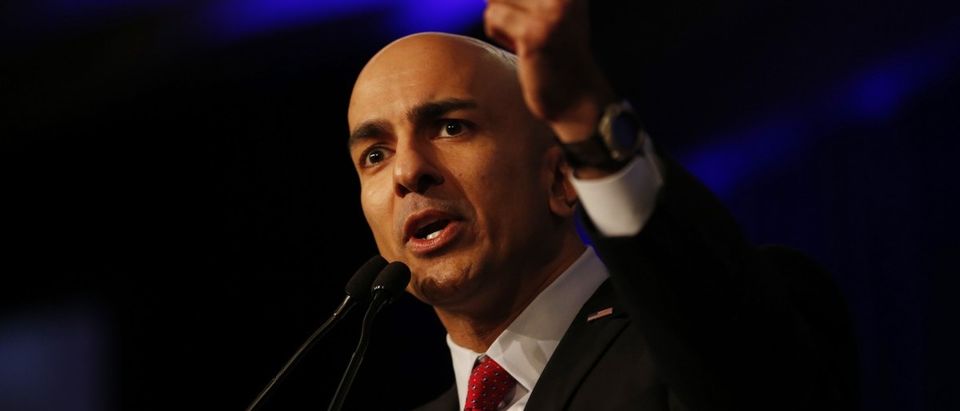WASHINGTON — Federal Reserve Bank of Minneapolis President Neel Kashkari suggested Tuesday breaking up “too big to fail” banks in order to prevent a future financial crisis.
In his first speech since becoming head of the Minneapolis Fed, Kashkari said at the Brookings Institution in Washington, D.C. that big banks “continue to pose a significant risk to our economy.”
“Although too-big-to-fail banks were not the sole cause of the recent financial crisis and the great recession, there is no question that their presence at the center of our financial system contributed significantly to the magnitude of the crisis and to the extent of damage it inflicted across the country,” he said.
Kashkari, a former Goldman Sachs executive and 2014 Republican nominee for governor of California, served as assistant Treasury secretary under Presidents Bush and Obama overseeing the implementation of the Trouble Asset Relief Program (TARP) after the financial crisis.
He said large financial institutions are inevitably going to make mistakes, but such mistakes “cannot be allowed to endanger the rest of the country.”
“Large banks must similarly be able to make mistakes — even very big mistakes — without requiring taxpayer bailouts and without triggering widespread economic damage,” Kashkari said.
Kashkari also said the Dodd-Frank Act, the 2010 legislation increasing financial regulation in response to the financial crisis, did not go far enough.
“While significant progress has been made to strengthen the financial system, I believe the act did not go far enough,” Kashkari said. “I believe the biggest banks are still too big to fail and continue to pose an ongoing large risk to our economy.”
“I believe we must … give serious consideration to a range of options, including the following: breaking up large banks into smaller, less connected, less important entities,” he explained. Here’s What Bernie Sanders’ Wall Street Tax Means For The Middle Class
He said it is important to strengthen financial institutions now because one of the lessons he learned from the 2008 financial crisis is that “we won’t see the next crisis coming, and it won’t look like what we might be expecting.”
Kashkari announced the Minneapolis Fed will hold a series of symposiums starting this spring in which experts and financial sector researchers and leaders will explore options to deal with too-big-to-fail banks. He said they plan on releasing a plan by the end of the year.
He later joined Donald Kohn, former vice chairman of the Federal Reserve and current senior fellow at Brookings, and Gary Stern, who served as president of the Minneapolis Fed from 1985 to 2009, for a panel discussion.
Kashkari offered several options he said were worth consideration, such as breaking up big banks into smaller entities or turning banks into highly regulated public utilities and “forcing them to hold so much capital that they virtually can’t fail.”
“There are lines in your speech that I can imagine Bernie Sanders or Elizabeth Warren saying,” joked David Wessel, moderator of Tuesday’s panel discussion and director of Brookings’ Hutchins Center on Fiscal and Monetary Policy.
Sanders praised Kashkari’s speech in a statement. “I am delighted that the new president of the Minneapolis Federal Reserve believes that we need to break up too big to fail banks,” Sanders said.
“If a bank is too big to fail, it is too big to exist,” he said. “When it comes to Wall Street reform that must be our bottom line. The risk of another bailout is too great, and the economic and political power of a handful of huge financial institutions is simply too large.


